Ghana’s burgeoning food delivery tech ecosystem has been growing over the last couple of years. This has all been thanks to technology like mobile phones and access to the internet.
With a growing middle class, increased smartphone penetration, and a bustling urban population, the demand for convenient, quick, and reliable food delivery services is on the rise.
During the COVID-19 lockdown, food delivery apps experienced a surge in use due to the lack of mobility of users who opted for food deliveries to their locations.
In this article, we take a look at the current food delivery ecosystem including the apps, the delivery services, and the current challenges in the space.
The Food Apps
Leading the charge are local startups that have harnessed technology to revolutionize the way Ghanaians order and receive their meals. These platforms offer a wide range of cuisines, from traditional Ghanaian dishes to international flavors, all available at the tap of an app.
Glovo
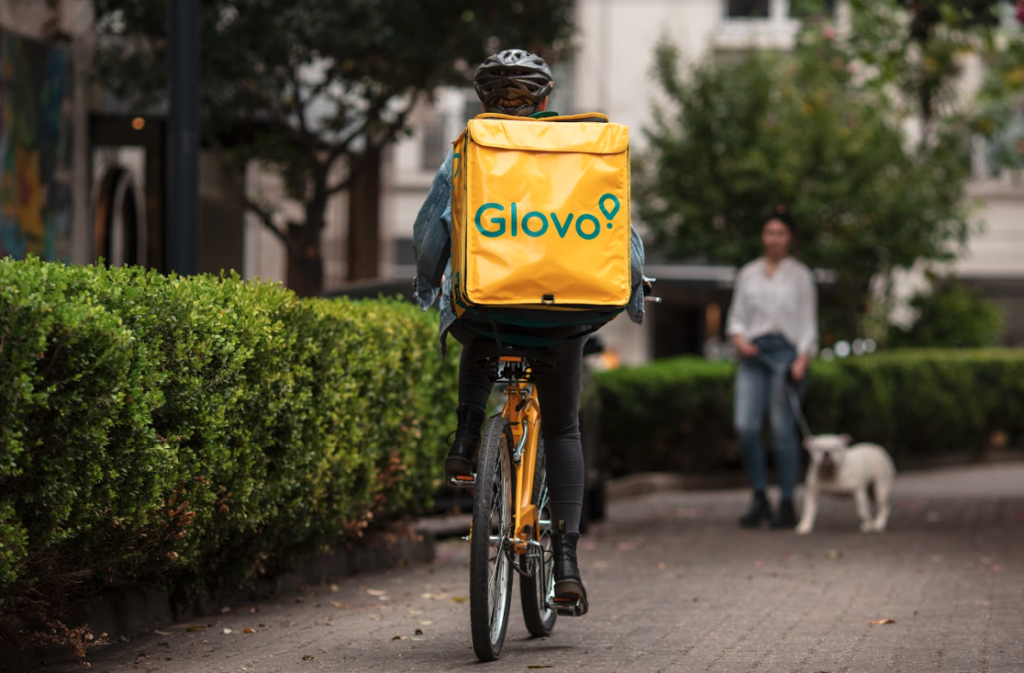
Glovo is a dynamic multi-category delivery service company which is based in Spain and operates in multiple African countries including Nigeria and Ghana.
The company launched its operations in the country in 2021, offering a wide range of services from food delivery to grocery shopping and even parapharmacy products.
There’s not much market data but Glovo currently looks like the market leader when it comes to food delivery apps in Ghana. The company doubled down in the Ghanaian market when it pledged 3.5 million euros in 2021.
Update: In a message to its restaurant partners, Glovo stated that they would be shutting down operations on May 10, 2024.
Bolt Food
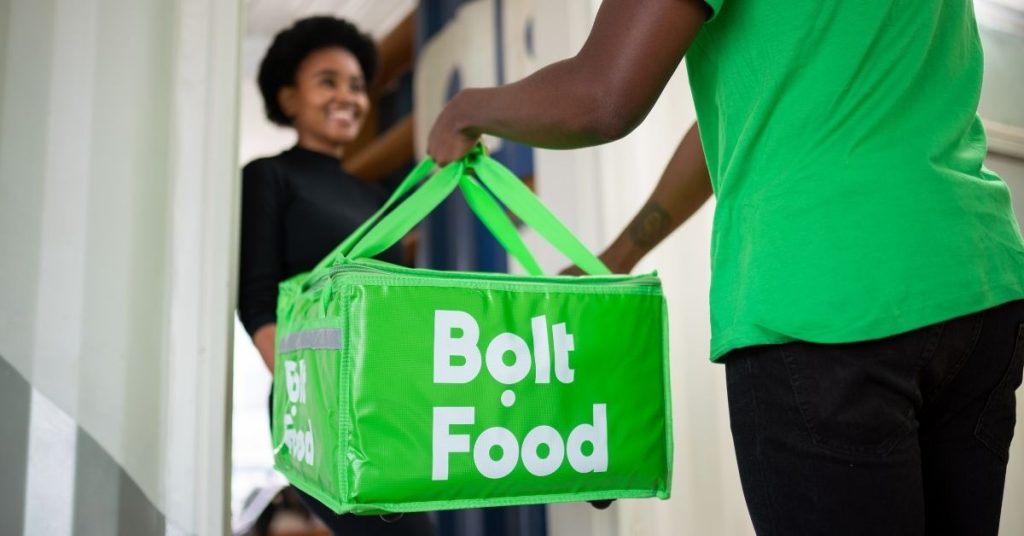
Bolt Food offers a wide selection of restaurants and stores, allowing users to enjoy their favorite meals and grocery items delivered right to their doorstep.
Bolt launched its food delivery feature in the Ghanaian market in 2018. Although the service struggled in other markets, with Bolt shuttering its Nigeria and South Africa markets, the company appears to be going strong in Ghana despite the macroeconomic challenges of high inflation and fuel prices.
Hubtel
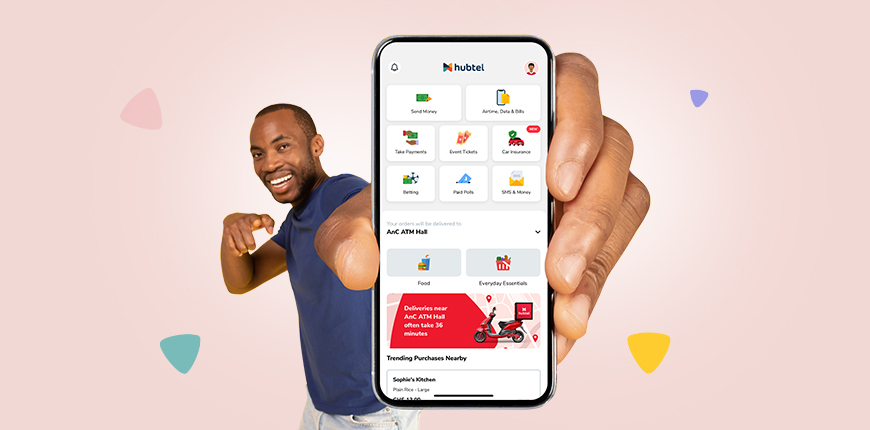
Hubtel started primarily as a payments app but has opened up its ecosystem to provide food delivery services for its users.
Customers can easily browse menus from a wide range of local restaurants and place orders using a combination of cards and mobile money for payments.
MenuFinder
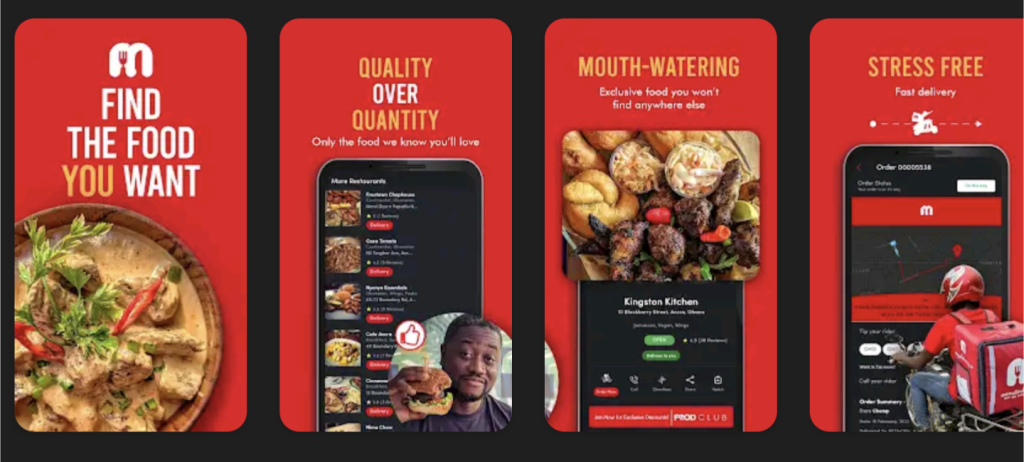
Menufinder Africa is an online platform that offers a curated selection of high-quality restaurants, ensuring that customers can enjoy the best local and international cuisines right at their doorstep.
The app also features a Food Club, providing discounts and offers on a range of restaurants.
Konzoom

Konzoom is a rapid grocery delivery service operating in Accra, offering a unique promise of delivering groceries within 60 minutes.
They provide a wide range of products, from fresh fruits and vegetables to drinks, toiletries, and even local favorites like shito sauce.
NokNok
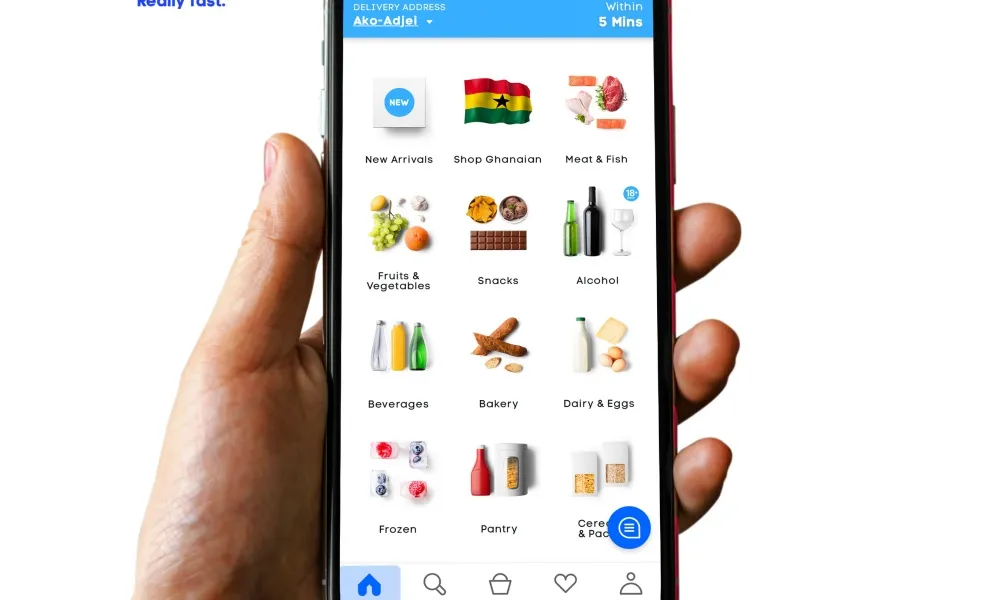
NokNok provides users with an online grocery shopping experience in Ghana with its promise of ultra-fast delivery.
The company which is based in Lebanon started operations in Ghana in 2022.
The Delivery Partners
Investments in logistics infrastructure and partnerships with local restaurants have been pivotal in this growth. Moreover, these tech-driven companies are contributing to the economy by creating jobs for delivery personnel and providing restaurants with a wider customer base.
Solar Taxi
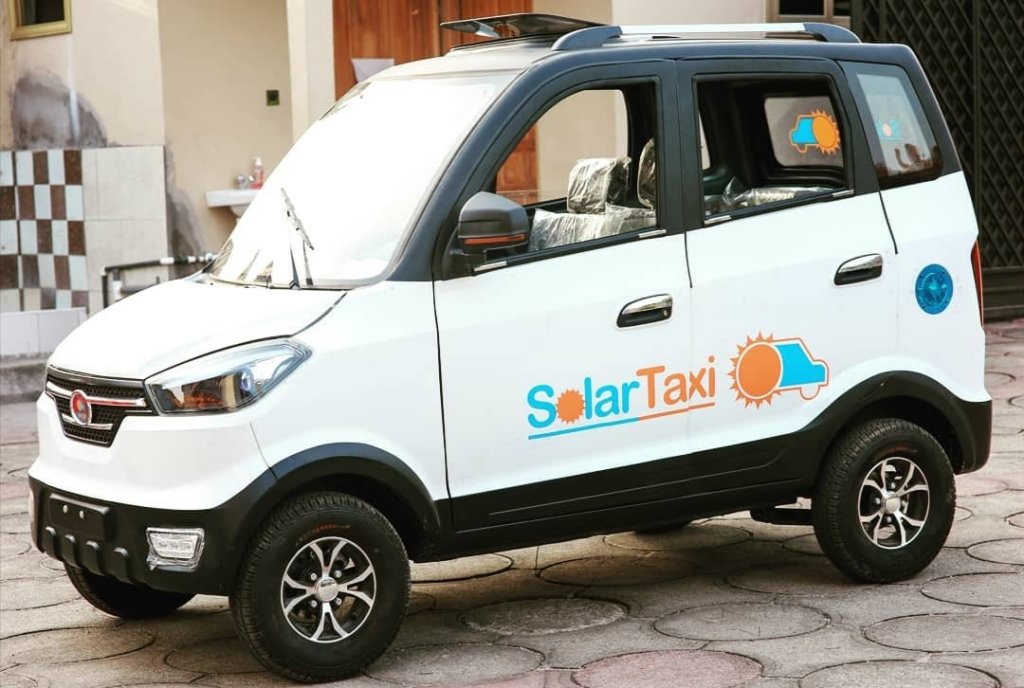
SolarTaxi is an innovative company based in Ghana that is pioneering the use of electric vehicles (EVs) to provide clean, efficient, and sustainable transportation solutions for its stakeholders
SolarTaxi offers a range of services including EV ride-hailing, courier delivery, and renewable energy solutions. The company partnered with Jumia for logistic purposes in 2021.
Wahu Mobility

Wahu Mobility is an EV mobility company based in Ghana, dedicated to helping transportation with sustainable fleet solutions tailored for Africa’s last mile.
They offer a rent-to-own model for electric bikes (eBikes), designed and manufactured locally to withstand challenging roads. Wahu provides fleet solutions to major mobility platforms like Bolt and Glovo, helping businesses transition to electric vehicles, save costs, and reduce their carbon footprint.
Kofa
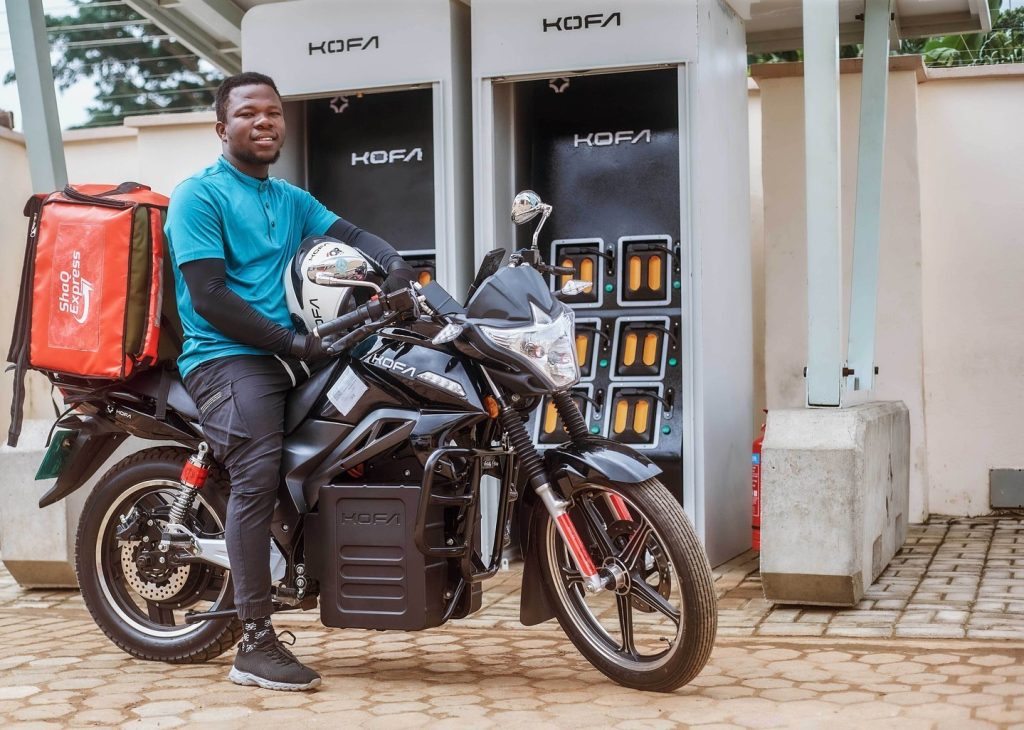
Kofa is an energy company based in Ghana that is hoping to reshape the energy landscape in Africa with its cutting-edge battery network.
The company also offers EV bikes to stakeholders like food delivery companies which can take advantage of its Kofa Swap & Go battery network which allows riders to swap their batteries at designated locations in Ghana.
ShaQ Express
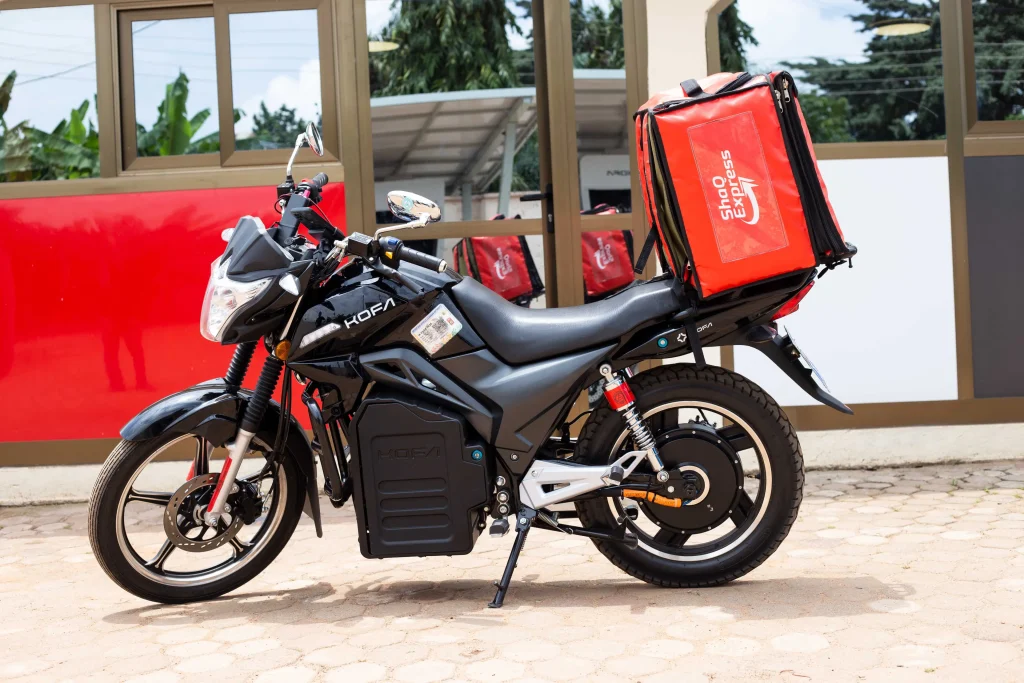
ShaQ Express is a delivery service platform that also doubles as a super app, offering a comprehensive suite of services that cater to various daily needs.
The app offers options for delivery, e-commerce, food, home services, pharmacy, and bill payments. The company is currently focused on sustainability, using electric bikes for deliveries to reduce carbon emissions and promote a greener.
Current Challenges
The food delivery ecosystem is currently facing a myriad of challenges, most of them macroeconomic factors.
High Inflation
Companies have had to deal with inflation rates as high as 50% in the last couple of years which have driven the cost of operations upwards.
Low Wages
According to some food delivery riders, they are woefully compensated for their work. One rider stated that she makes about 9-10 GHC per delivery, with most of the wages going into payment of their bikes and fuel.
High Taxes
Ghana has had to raise taxes to help bolster a flailing economy and this has impacted food delivery businesses.
Looking Forward
The survival of the food delivery system will depend on the macroeconomic factors in Ghana in the long term. Currently, high taxes and inflation are major factors in the survival of most of the ecosystem.
In the past, some players like Jumia Food have shut down due to competition and financial challenges.
Bolt Food shut down its operations in Nigeria and South Africa citing macroeconomic challenges but hasn't yet made any statements about its future in Ghana.
We anticipate the food delivery ecosystem in Ghana to continue to take losses, barely make profits, and deal with high prices of food and deliveries until Ghana's economy gets better in the long term.
Catch up on news and other tidbits on our WhatsApp Community Page, Twitter/X, and subscribe to our weekly newsletter to ensure you don’t miss out on any news.










